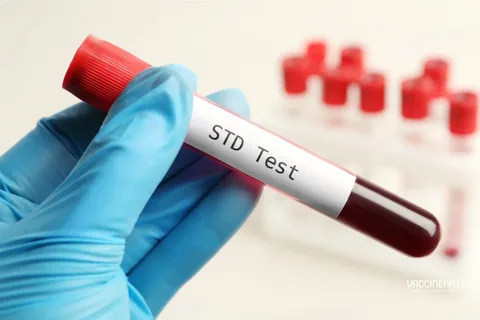Talking about health is important. Some health topics can feel a bit uncomfortable to discuss. But knowing the facts is the first step to taking good care of yourself. You may have heard the terms STD and STI. Many people use these words thinking they mean the same thing. However, there is a small but important difference between them. Understanding this difference can make it easier to talk about your health and get the right care. This article will explain everything in simple, clear language. We will cover what these terms mean, how they are different, and why this matters for your well-being.
What Do STD and STI Mean?
Let us start with the basics. Both acronyms are about health conditions that can be passed between people through intimate physical contact.
STI stands for Sexually Transmitted Infection. This term refers to the first stage. It means a germ has entered a person’s body. The person has an infection. However, they might not feel sick or see any signs. There are often no symptoms at this stage.
STD stands for Sexually Transmitted Disease. This term is used when that infection causes problems. The germ has grown and led to clear signs of illness. This is when an infection becomes a disease.
Think of it like this: An STI is like a seed planted in the soil. You know it is there, but you cannot see it. An STD is when that seed grows into a plant you can see. All STDs begin as STIs. But not all STIs will become STDs. This is why getting checked by a doctor is so important. It helps find an infection before it can cause problems. If you are active and have questions about your health, regular check-ups are a normal part of staying well. For people in Chicago, you can always have a private conversation with the medical team at your local urgent care. They offer a comfortable space to talk about your health needs.
Why Do We Use Both Terms? STI vs. STD
For a long time, most people used the term STD. So why do health experts now often use STI? The change happened for good reasons.
First, the word “disease” can sound serious and frightening. It makes people think of someone who is very sick. Since many infections have no signs at all, the word “infection” is often more correct. It feels less scary for people.
Second, using “infection” focuses on the beginning step. It highlights that a germ is present. This helps encourage people to get tested even if they feel fine. Finding and treating an infection early can stop it from ever becoming a disease.
How Do These Conditions Spread?
These infections spread through close, intimate contact. The germs that cause them are found in certain body fluids.
The main ways they spread are:
- Close physical contact without a protective barrier.
- Skin-to-skin contact with an area that has an infection.
- Sharing needles or other equipment that can carry blood.
- From a parent to their baby during pregnancy or birth.
It is very important to know that you cannot get these infections from casual contact. You will not get one from hugging someone, shaking hands, sharing food, or sitting on the same chair. The germs do not live long outside the body.
Common Types and What to Look For
Many different infections exist. Some can be cured with medicine. Others can be managed with treatment. Here are some of the most common ones.
Infections Treated with Medicine
Chlamydia: This is a very common infection. Most people with it have no symptoms. If signs do appear, they might include pain or unusual fluid. If not treated, it can lead to other health issues.
Gonorrhea: Often called “the clap,” gonorrhea can also have no symptoms. It can cause a burning feeling and discharge. Like chlamydia, untreated gonorrhea can cause other health problems.
Syphilis: This one is complex because it happens in stages. It might start with a single, painless sore. Later, a skin rash can appear. If not treated for a long time, it can harm the body’s organs.
Infections Managed with Care
HPV (Human Papillomavirus): This is the most common infection. There are many types. Some can lead to health issues later. A vaccine is available that offers very good protection.
Herpes: Herpes Simplex Virus (HSV) can cause sores on the mouth or other areas. The sores come and go. Medicine can help make these times shorter and less severe.
HIV: The Human Immunodeficiency Virus affects the body’s immune system. With proper medical care, people with HIV can live long, healthy lives. There is also medicine that people can take to help prevent getting HIV.
The Importance of Getting Checked
Since so many infections have no signs, testing is the only way to know for sure if you have one. Getting tested is a smart and positive choice for your health. It is a normal part of healthcare, just like a regular doctor’s visit.
You should think about getting tested if:
- You have been physically intimate without protection.
- You are starting a new relationship.
- You or your partner have had other partners.
- You have any feelings or signs that concern you.
- It has been some time since your last test.
If the idea of testing makes you nervous, remember that doctors are there to help. They are professionals who want you to be healthy. For people in Chicago, many urgent care std testing locations provide walk-in appointments with private results. This makes the whole process much easier.
How to Stay Healthy
The good news is that you can take steps to greatly reduce your risk.
Use Protection: Using protection the right way every time is one of the best methods.
Get Vaccinated: Vaccines can protect you from certain infections like HPV.
Talk to Your Partner: Have an open conversation with your partner about health history and testing. It might feel awkward, but your health is worth it.
Get Tested Regularly: Make it a routine. Knowing your status gives you peace of mind and keeps everyone safe.
Your Questions Answered (FAQs)
How soon after contact can I get tested?
It depends on the infection. Some can be found within a few days. For others, it can take a few weeks for a test to be correct. A doctor can tell you the best time to test based on your situation.
Where can I get tested besides a doctor’s office?
You can get tested at community health clinics and many urgent care centers. These places offer private and often low-cost testing.
Are home testing kits good?
Many home testing kits are reliable. You collect a sample yourself and mail it to a lab. It is important to use a kit that is approved by health officials. You will still need to see a doctor if a test is positive.
What should I do if my test is positive?
First, stay calm. Many infections are curable, and all are treatable. See a healthcare provider to discuss treatment. It is also important to tell your recent partner(s) so they can also get tested and treated. Health departments can help you do this privately.
Do I have to tell my partner if I have an infection?
Yes, it is the right thing to do. It allows them to get checked and care for their health. It also helps prevent the infection from spreading. While the talk can be hard, honesty is key for a healthy relationship.




